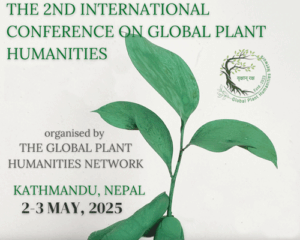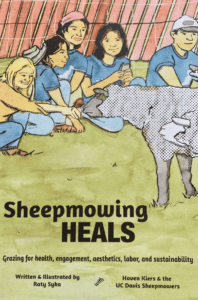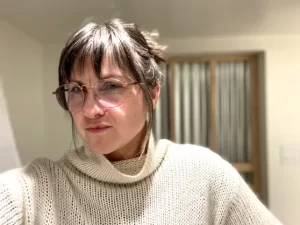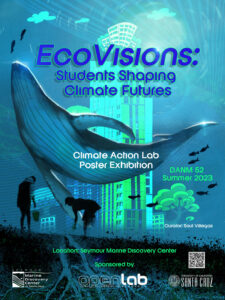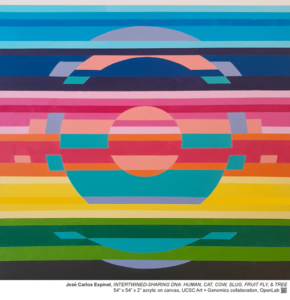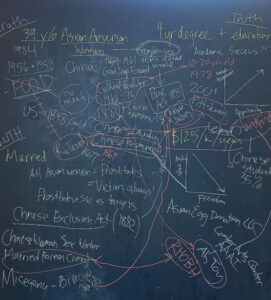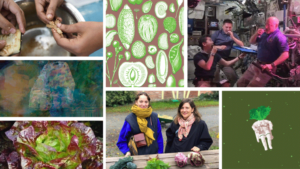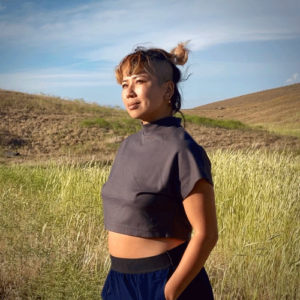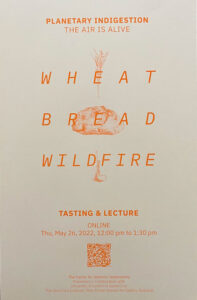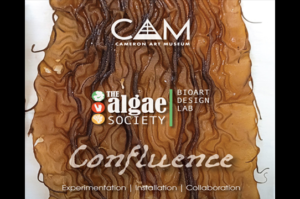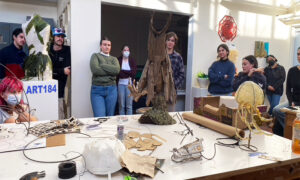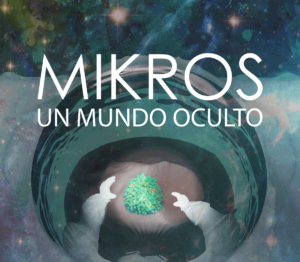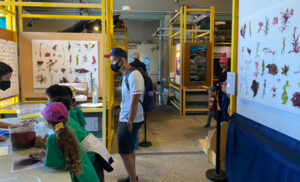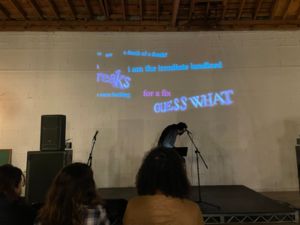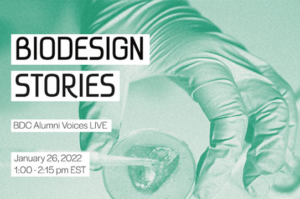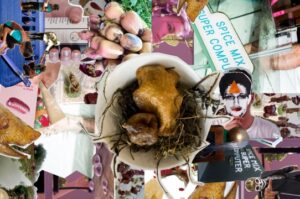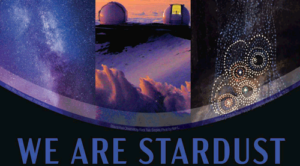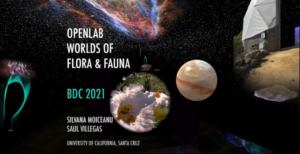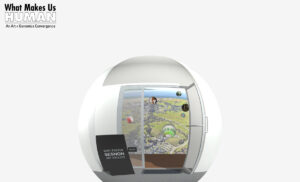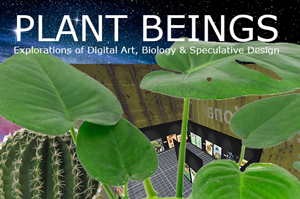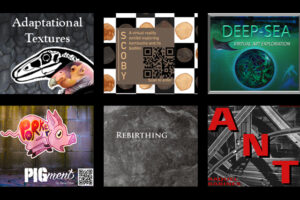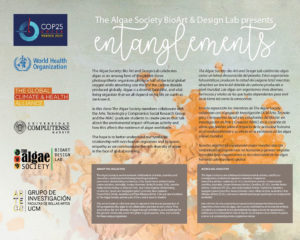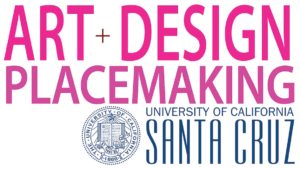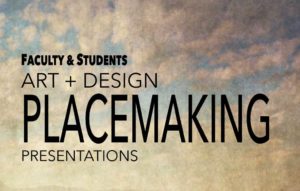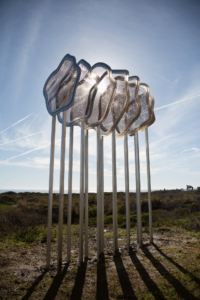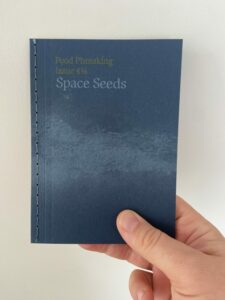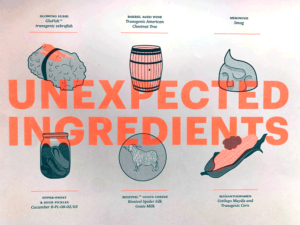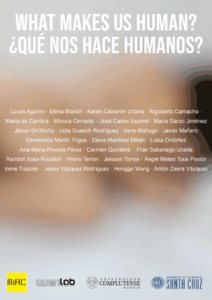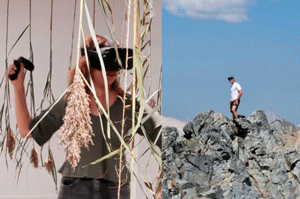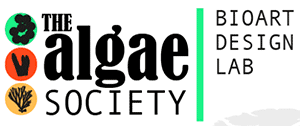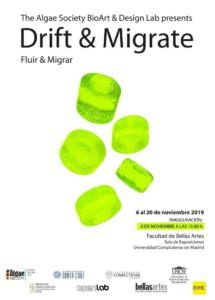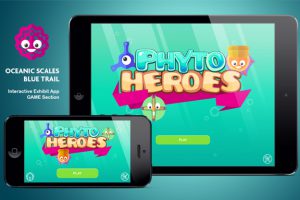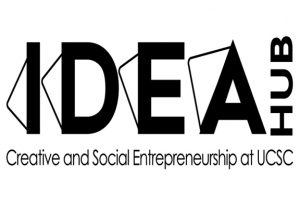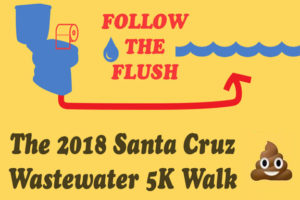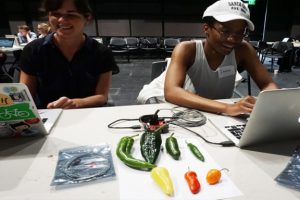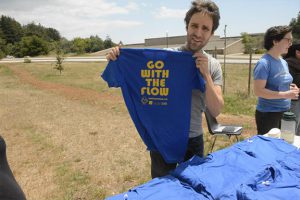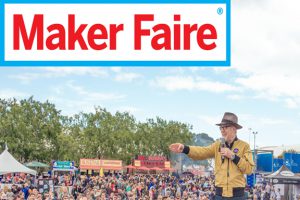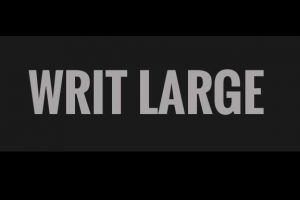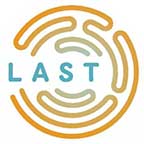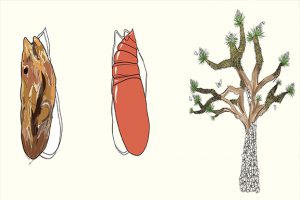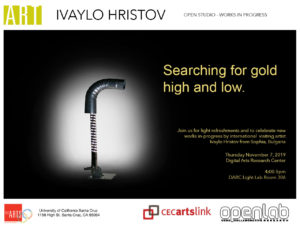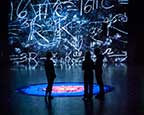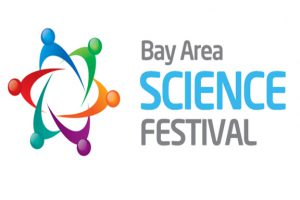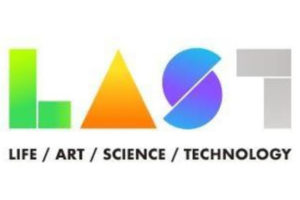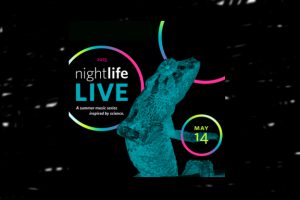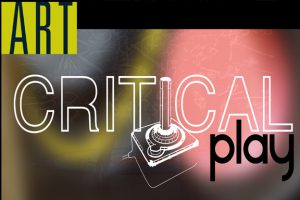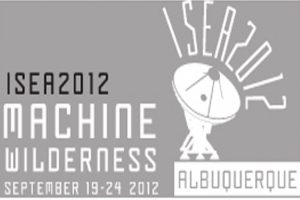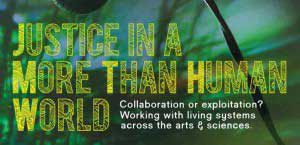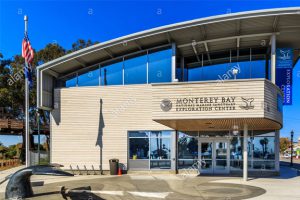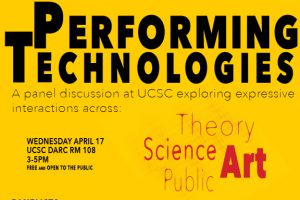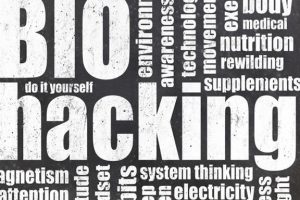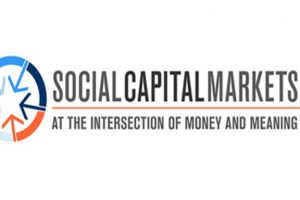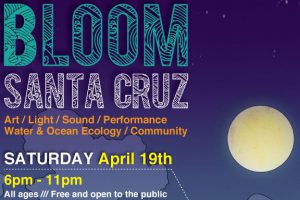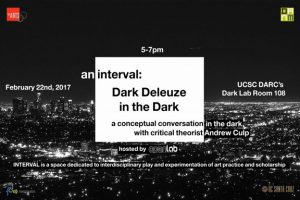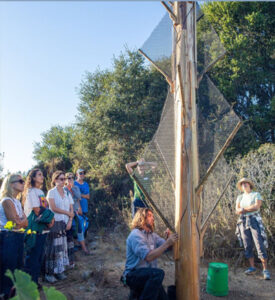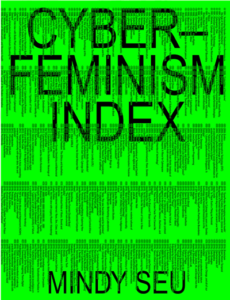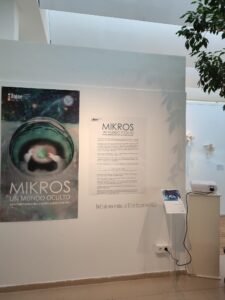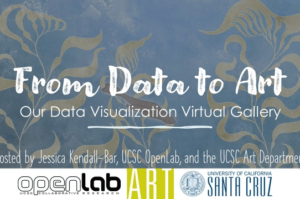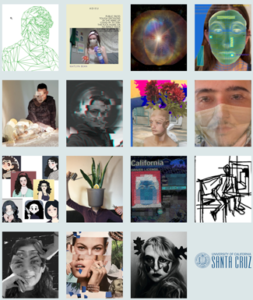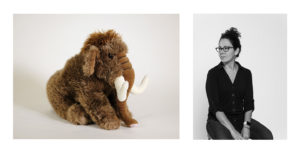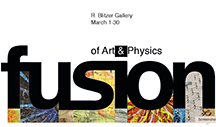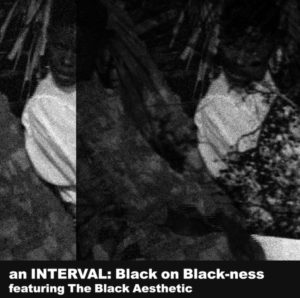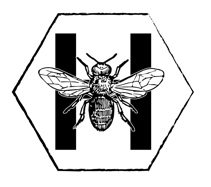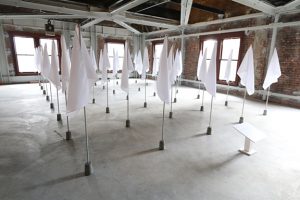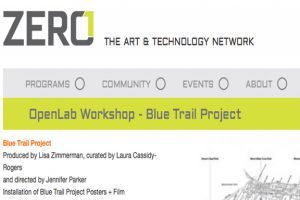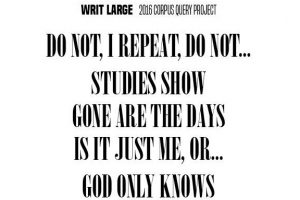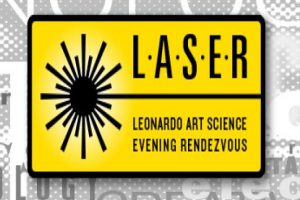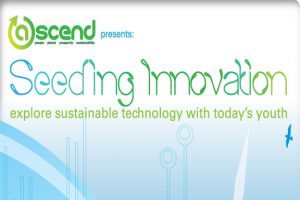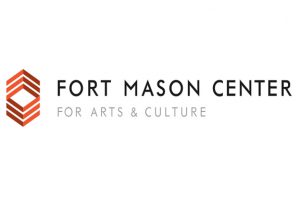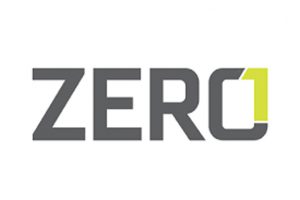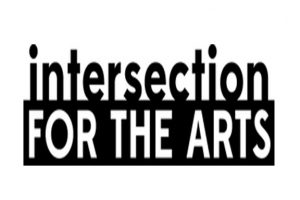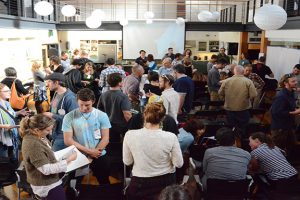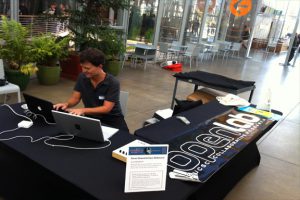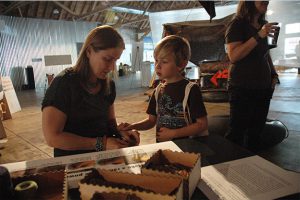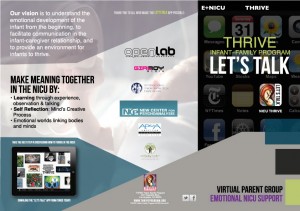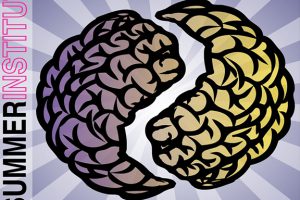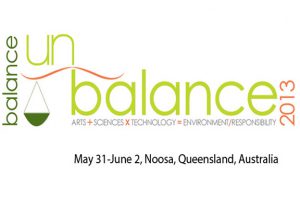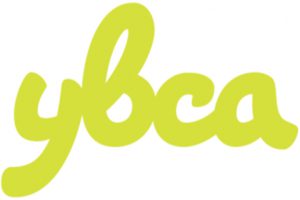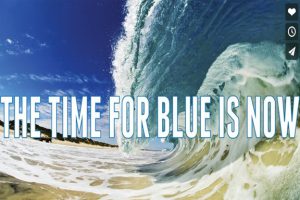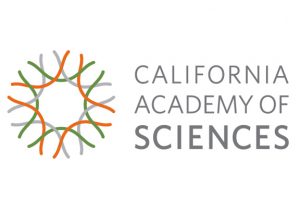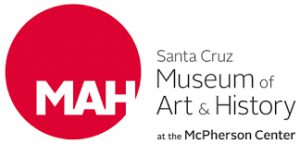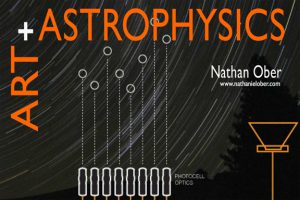Jennifer Parker Presents at Global Plant Humanities Conference
At the 2nd International Conference on Global Plant Humanities (GPH25), held in Kathmandu, Nepal, Professor Jennifer Parker delivered a virtual presentation titled “Learning from Algae through Deep Pasts and Collaborative Futures” as part of the panel “Creative Engagements with the Vegetal World.” Her work explored algae as both ancient oxygen producers and contemporary collaborators in shaping ecological futures.
Held during a time of profound environmental change, GPH25 convened scholars, artists, and scientists to reflect on the enduring, often fragile, bond between people and plants. From the highlands of Nepal to the coastal forests of Sri Lanka, participants traced flora’s roles in medicine, migration, and ceremony. With 5 keynotes, 4 plenaries, and 33 panels, the conference elevated global voices while honoring South Asia’s biocultural diversity. Hosted by Medhavi College, the event offered a moment of shared attention and a gesture toward more rooted, reciprocal futures.
More information HERE
Sheepmowing HEALS a new comic book written and illustrated by Raty Syka
Sheepmowing HEALS: grazing for health, engagement, aesthetics, labor, and sustainability. Developed with Havens Kiers & the UC Davis Seepmowers. This project was first printed in May 2024 with support from UCSC Environmental Art and Social Practice and OpenLab.
More information about Raty Syka (a.k.a the numbie) can be found HERE and more information about the Sheepmowers can be found HERE
Jennifer Parker, OpenLab Founding Director awarded seed funds from the Center for Coastal Climate Resilience
Pilot funding to support The Climate Action Lab: Art & Science initiative at UC Santa Cruz with OpenLab to Help Coastal Communities Understand and Respond to Climate Risks.
Details: here
EcoVisions: Students Shaping Climate Futures
Sept. 8-Sept. 27, 2023
EcoVisions showcases an inspiring collection of posters at the Seymour Discovery Center designed by students in the "Altering the Digital Image & Creative Art Practices" course. A lower division undergraduate class developed and taught by Villegas in the summer of 2023 at UC Santa Cruz. Students were asked to focus on creating positive messaging that sparks curiosity, builds opportunities for engagement, and illustrates possibilities for action and change while illuminating the beauty and wonder of the natural world we are all part of.
Details: here
"DNA INTERTWINED" by José Carlos Espinel, at UCSC Genomics Institute
SHARING DNA: HUMAN, CAT, COW, SLUG, FRUIT FLY AND TREE
A collection of paintings and sculptures created in collaboration with the Genomics Institute during an Art Residency at UCSC OpenLab by artist and professor José Carlos Espinel.
The artist translated DNA profiles into a visual language, using stripes that represent the 20 proteins found in human, cat, cow, slug, fruit fly, and tree genomes. What sets this collection apart is the artist's approach to color selection—a method that draws a connection between the four nucleotides and the blending of primary colors: cyan, magenta, yellow, and white.
Click HERE to learn more about the collection and the artist
THE GREENHOUSE PROJECT SPRING EVENT & SEED EXCHANGE
152 FARM RD, SANTA CRUZ, CA
The Greenhouse Project is hosting its first public event, and we'd love to see you there! The event will include a reading by Dine writer and poet Byron Aspaas, an exhibition of prints by Edward Ramirez, Auntie Manna's Vietnamese food pop-up by Amanda Linh Vong, and a seed exchange (bring seeds!) hosted by Zoe Loomis from Pie Ranch. Auntie Manna will also host a banh mi workshop (limited to 15 people). To sign-up for the banh mi workshop, email dalbell@ucsc.edu. Please feel free to share! A poster is attached below if needed.
SPACE PERMACULTURE: Seed Savers Exchange
10-12pm, Sunday May 21, 2023 at UCSC Seymour Center
Find & Share Seeds as part of the Space Permaculture project. A network of gardens for growing, interpreting, and preserving the seeds of edible plants cultivated for eating in outer space. Founded by the Center for Genomic Gastronomy, an international artist-led think tank sponsored by UCSC's Genomics Institute and OpenLab as visiting artists in residence to engage people to research, grow, taste, and debate the agricultural biodiversity of outer space.
There are many local and national seed saving programs that preserve the historical agricultural biodiversity of a place, but who will assemble, maintain and propagate the plant varieties that have been grown in, or cultivated for, outer space?
Join us Sunday, May 21st, at 10am to collaborate and share some of our favorite seeds, Artist Jorgge Menna Barreto will join the conversation and share his thoughts on seeds along with EASP graduate students L. Gilbert and Dav Bell who will talk about their recent greenhouse project at the farm at UCSC.
This event is free and open to the public
Details: here
Kim Ye, Art + Genomics visiting artist at greenhouse project June 4, 2023
Food, Fertility, and Boarder Control: a multi-sensorial performance through the recent history of East Asian labor and consumption in the US.
Kim Ye (all pronouns, b. 1984, Beijing, China) is a Chinese American multi-disciplinary artist whose research-based practice encompasses performance, sculpture, video, installation, text, and social engagement. Their work engages gendered constructions around power, labor, and taboo by activating the artist/viewer dynamic to create situations of intimacy and exchange in public space.
More information about Kim Ye HERE
PLANETARY INDIGESTION: THE AIR IS ALIVE: WHEAT BREAD WILDFIRE
PLANETARY INDIGESTION is a year-long series of conversations and performative lectures about food, ecology & biotechnology between the Center for Genomic Gastronomy (CGG), UC Santa Cruz faculty and non-institutional expert guests. The series is anchored by four public online lectures during the artists' residency period (October 2021 - September 2022) with reading groups, artist hotlines, and experiments to be announced along the way.
All lectures are free and open to the public with student participation strongly encouraged. View the full schedule of events
"Confluence: Experimentation | Installation | Collaboration" by the Algae Society at the Cameron Art Cameron Art Museum
January 28 - April 24, 2022
Confluence is a site specific multi-sensory art and science experience by the Algae Society that features algal portraits actively being grown in a Bio Art lab, 3D printed sculptures, immersive video and sound works, algae collections, a floating island ecosystem and digital microscopes to view and explore on your own. Together these artworks offer an intimate way to get to know algae - a snapshot of our present moment situated between the impact of humanity on nature and whatever comes next.
Virtual Open Studios: Art184: 3D Art + Design
ART 184 with Professor Jennifer Parker pivoted to Virtual Open Studios in Solidarity with UC system wide strike. We would have loved to share this work in person - instead we all came together to share the work of the class digitally.
Art 184 Emphasizes the conceptual aspects of 3D art and design using the laser cutter to prototype and experiment with construction methods and materials to create, represent, respond to, and reflect on 3D forms in space. Students learn about mixed-media fabrication techniques, materials, and processes that include using a wood shop and metal-fabrication shop.
We pivoted to Virtual Open Studios in Solidarity with UC wide Strike
Find out more HERE
MIKROS: UN MUNDO OCULTO
Madrid Planetarium in Spain.
Novembers - January 2023
An imaginary world of the overlooked and imperceptible unicellular algae, cyanobacteria, or foraminifera in support of life on this planet as we search for possibilities of life elsewhere. The exhibition combines audiovisual projections, painting, sculpture, and sound art created by an international group of artists and scientists who work together to share the beauty and power of algae and other microscopic creatures.
Find out more HERE
Getting to Know Algae: Creating Artworks with Seaweed & Kelp
UC Santa Cruz Seymour Discovery Center
May - July 2022
As the tide rises and falls along the coastlines, it brings forth seaweed, a type of multicellular algae, from sea to land and back again. Coastlines are ancestral sites shared by all living beings. They are thresholds in support of complex systems, buoyant gateways to places of kinship between all species in the ebb and flow of the sea. Art Professor Jennifer Parker explores the wrack as a shared space for research and creative practice.
Find out more HERE
Madison McCartha, OpenLab research fellow at The Poetic Research Bureau in Los Angeles
MADISON MCCARTHA is a poet, critic, and multimedia artist. FREAKOPHONE WORLD (Inside the Castle, 2021) is their debut book of poetry and visual art. Their second book, THE CRYPTODRONE SEQUENCE, is forthcoming from Black Ocean. McCartha holds an MFA from the University of Notre Dame and is a PhD student at the University of California, Santa Cruz.
The Poetic Research Bureau is a valise fiction and portable literary service in the public domain. It is a founding and resident member of 2220 Arts + Archives on Beverly Boulevard in Los Angeles.
All lectures are free and open to the public with student participation strongly encouraged.
Readings are supported by a Mike Kelley Foundation for the Arts 2021 Organizational Support Grant.
Online event: Register here
Silvana Moiceanu, OpenLab undergraduate research fellow, selected to present at BioDesign Stories
Congratulations to Silvana Moiceanu, UCSC Art alumna and UCSC OpenLab undergraduate fellow, chosen to present her work for the Biodesign Stories: BDC Alumni Voices LIVE.
This is a chance to learn more about Silvana’s speculative design & technology projects using virtual reality and SCOOBY and to meet 12 emerging creators coming out of Biodesign Challenge and the Biodesign Sprint. Each alum will give a virtual rapid-fire presentation (similar to a PechaKucha!) to share their latest projects, research, inquiries, and more.
January 26, 2022 1pm-2:15pm EST
PLANETARY INDIGESTION: PUBLIC CONVERSATION SERIES (ONLINE)
PLANETARY INDIGESTION is a year-long series of conversations and performative lectures about food, ecology & biotechnology between the Center for Genomic Gastronomy (CGG), UC Santa Cruz faculty and non-institutional expert guests. The series is anchored by four public online lectures during the artists' residency period (Oct. 2021—Sept. 2022) with reading groups, artist hotlines, and experiments to be announced along the way.
All lectures are free and open to the public with student participation strongly encouraged.
November 19, 12pm–1:30pm PT
ABOUT US: Introducing the Center for Genomic Gastronomy
Online event: Register here
February 4, 12pm–1:30pm PT
UNEXPECTED INGREDIENTS: Smog Tasting, De-Extinction Dinner & Glowing Sushi Cooking Show
Online event: Register here
April 1, 12pm–1:30pm PT
THE AIR IS ALIVE: Civilizational Anxiety & Climate
Online event: Register here
June 3, 12pm–1:30pm PT
FRAME/SHIFT: From Microbial to Planetary
Online event: Register here
The Center for Genomic Gastronomy is an artist-led think tank launched in 2010 that examines the biotechnologies and biodiversity of human food systems.
Click here to learn more
Native Skywatchers – Starry, Starry Nights Collaboration: We Are Stardust
Professor. Annette Lee (St. Cloud State U.) and Professor Raja GuhaThakurta
Workshops planned for Winter 2022
As described by Mi’kmaw elders: “Two-Eyed Seeing is learning to see from one eye with the strengths of Indigenous knowledges and ways of knowing, and from the other eye with the strengths of Western knowledges and ways of knowing, and to use both these eyes for the benefit of all” (Bartlett, Marshall, and Marshall 2012, 336). This collaboration will follow in the spirit and framework of Two-Eyed Seeing, with particular emphasis on the last line ‘use both these eyes for the benefit of all’. It builds on the existing Native Skywatchers research and programming initiative in a unique merger with the Starry, Starry Nights initiative. The goal is to give students a unique opportunity for authentic involvement in science and to weave in cultural relevance equally into the experience to produce the highest level of engagement, excitement, and meaning for all involved. This project lives at the intersection of science, art, and culture.
Click here to learn more
OpenLab Worlds of Flora Fauna: a tool for speculative thinking and design.
By Saul Villegas & Silvana Moiceanu
Creating an immersive bioart world, as a tool for speculating thinking and design, shifts and opens new possibilities for experiencing and learning about art, biology, and technology — unbound by the physical non-virtual world.
What Makes Us Human: An Art + Genomics Convergence hosted by the Sesnon Gallery
The unfolding global pandemic has triggered an existential reckoning over our conceptions of place and human encounter. Twenty years after the mapping of the human genome, we find ourselves redefining and expanding genomics while social-distancing with protests, the insurgent uprisings for black lives and all silenced and underrepresented identities have forcefully brought visibility, urgency and profound pause to our collective reckoning over the core values surrounding the place and enterprise of the public research university and its stewardship in advancing social and climate justice as essential to civil society and environmental sustainability.
ART20K: Intro to Digital Art & New Media
A ten-week course taught by Professor Jennifer Parker for Art Majors at UC Santa Cruz as part of remote learning during the pandemic.
Inspired by Anna Tsings Feral Atlas project and her argument “that invasion develops as a relationship between an organism and an infrastructure,” this class focused on two main questions: 1) How can digital art embrace radical modes of eco-social experimentation as biodesign to reveal the interconnected relationships of ecologies and humans? 2) Can virtual Human-Plant relationships inform our future with multi-species communities as a tool to support empathy and expand public awareness of more-than-human life on the planet.
Virtual Student Exhibition Winter 2021
Working with the OpenLab theme What Makes Us Human: Art + Genomics Convergence at the Sesnon Gallery, undergraduate students in the Art189 course worked with Art Professor Jennifer Parker for ten-weeks to create new bio art and design artworks for their virtual exhibition and website.
Click here to learn more about student works and view the online exhibition
Entanglements is a collective exhibition of works that emerged as a continuation of the “DRIFT & MIGRATE” project created by The Algae Society exhibit at the Faculty of Fine Arts in Madrid in November 2019 for the 25th Climate Change Conference & Symposium.
The University of California is home to both faculty and students who are at the forefront of placemaking in communities throughout the state and across the globe. Their work is core to UC’s foundational public research mission as a land grant institution and its commitment to scholarship that directly serves the interests of California’s diverse publics.
OpenLab Director Jennifer Parker is the led Pi at UCSC spearheading and directing placemaking opportunities with faculty and students across campus.
Click here to learn more.
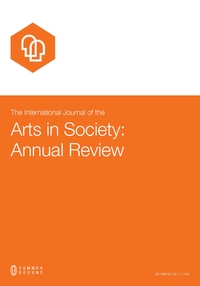
Algae Society: Bio Art Design Lab published in Common Ground Research Journal
Title: Science and Collectivism in Artistic Creation: Embracing Climate Change through Art
Author(s): José Carlos Espinel Velasco , Jennifer Parker, and Nadjejda Espinel-Velasco, Publisher: Common Ground Research Networks, Collection: Common Ground Research Networks, Series: The Arts in Society, Journal Title: The International Journal of the Arts in Society: Annual Review, Keywords: Art and Science, Bio-art, Ocean Acidification, Global Change, Collaborative Research, Science Communication, Volume: 14, Issue: 1, Year: 2020, ISSN: 1833-1866 (Print), ISSN: 2473-5809 (Online)
Gathering Cloud: Blending Creativity and Sustainability at Seymour Center
More information HERE
Food Phreaking Issue 4 ½
SPACE SEEDS: the seeds of edible plant varieties that have been cultivated for—or traveled to—outer space. SPACE SEEDS focuses on the peculiar botanical space travelers that have been bred, nourished, grown, eaten, and in some cases even brought back to Earth to repopulate our soils.
COMMISSIONED ESSAYS
Satellite Seeds as Space PR by David Skogerboe
Foraging Cyanobacteria in Space by Jennifer Parker
Internalised Terroir by Miha Turšič
Plants That Jumped the Priory Walls by Hollie Kearns
From Phenology to the Vast Universe by Diane Xing
DOWNLOAD
Space Seeds PDF >>> Here
UNEXPECTED INGREDIENTS: Smog Tasting, De-Extinction Dinner and Glowing Sushi Cooking Show
How do the unexpected ingredients in our current or future food system impact taste, nutrition and environmental health? Is our food system driving Planetary Indigestion, or is Planetary Indigestion reshaping the human food system?
Our guest UCSC experts will help us decide: interrogating a series of ingredients and deciding
which recipes to EAT!, REHEAT!, or COMPOST! Featuring guests Rachel Meyer, Professor of Ecology and Evolutionary Biology and micha c cárdenas, Professor of Performance, Play and Design (PPD) and Critical Race and Ethnic Studies, UC Santa Cruz.
The Center for Genomic Gastronomy are UCSC OpenLab Artists-in-Residence working as an artist-led think tank launched in 2010 that examines the biotechnologies and biodiversity of human food systems. Their mission is to map food controversies, prototype alternative culinary futures, and imagine a more just, biodiverse & beautiful food system.
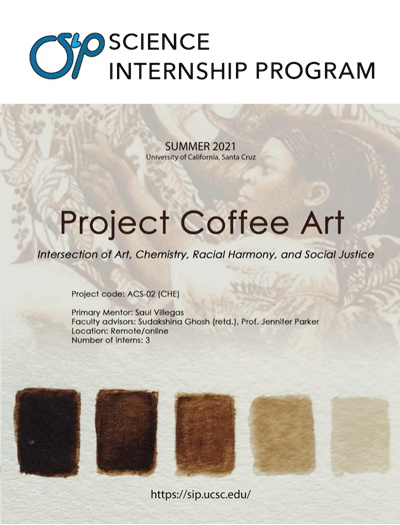
Summer 2021 Science Internship Project Coffee Art, the intersection of Art, Chemistry, Racial Harmony, and Social Justice.
Coffee is one of the most enjoyed drinks. In this research project, the SIP interns and mentors are going to investigate the chemistry involved in the journey of the bean from its raw stage to the cup of coffee and explore how coffee grounds can be used to create works of art. The art works created with coffee should reflect racial harmony. The goal of this research project is to give the interns an opportunity to experience the intersection of art, science, and the humanitarian aspects of life.
Click here to learn more.
¿Qué nos hace humanos?
The Art, Technology & Social Commitment Collective (ARTECO) at Complutense University of Madrid created a virtual exhibition, ¿Qué nos hace humanos? with Graduate Students in the MIAC-BBAA program and OpenLab. The exhibition includes multiply languages and techniques to reflect on the human condition as part of the What Makes Us Human: Art + Genomics Convergence at the Sesnon Gallery.
Click here to learn more and view the online exhibition
INTERPRETING LIFE WITH VIRUSES, HUMANS, AND PLANTS
The Algae Society Bio Art Design Lab opens at the MOXI Wolf Museum of Innovation + Exploration in Santa Barbara California. April 26, 2019. The Algae Society is a global collective of interdisciplinary researchers working together to establish a new community with algae, as a non-human international research partner to spark and ignite new research & communication approaches across the globe that transcend disciplines to invite deeper more compassionate connections for living organisms like algae.
This was the Algae Society's first exhibition in Spain with the Complutense Research Group Art, Technology and Social Commitment – AR-TE-CS.and the MIAC graduate students to create pieces that talk about the environmental impact of human activity and how this affects the existence of algae worldwide. Works from the exhibit can be viewed on the projects page
Phyto Heros- Alliance Data & EPSILON awarded a generous Community Outreach Grant to Oceanic Scales, funding the completion of an art & science educational app version of the project that also serves as an augmented reality system to help reveal hidden layers of the Oceanic Scales interactive puzzle.
The IDEA Hub is a campus-wide initiative for students, created to spread social and creative entrepreneurship at UCSC, Led by the Center for Innovation and Entrepreneurial Development (CIED). A network of incubation facilities, fellowships, seminars, workshops, and mentorships provide students space to critically think about the challenges facing society and propose pathways for meaningful intervention.
Openlab is thrilled to be exhibiting our Oceanic Scales Exhibit at the Randall Museum, a Natural History Museum, Science Museum and Arts Center as a temporary exhibit from February '18 - March -19. Please join us at the Grand Re-Opening February 11, 2018 from 10am-3pm. More information here
Follow the Flush is a free participatory 5K walk following the path of wastewater through interesting landscapes that are hybrids of urban infrastructure and natural features.
Bio-Sensing Workshop with Sussex University of UCSC. A Practice-based art and science research workshop organized by: Dr Emile Devereaux and Dr Kate O’Riordan, University of Sussex, working with Prof Jennifer Parker and David Harris at UCSC OpenLab during the UCSC-SUSSEX Digital Media Exchange.
Learn more about the exchange HERE
The Slugs to Sludge Wastewater 5K is a walk which follows the path of wastewater from the UC-Santa Cruz campus to the Wastewater Treatment Plant at Neary Lagoon. Along the way, participants will learn about the poetics and politics of human waste, and the water required to process it, as they travel through several different hybrid landscapes of wilderness and human infrastructure.
Part science fair, part county fair, and part something entirely new, Maker Faire is an all-ages gathering of tech enthusiasts, crafters, educators, tinkerers, hobbyists, engineers, science clubs, authors, artists, students, and commercial exhibitors. All of these “makers” come to Maker Faire to show what they have made and to share what they have learned.
Writ Large is an Oakland-based exhibition and screening series and commissioning program for creative work at the intersection of literature, visual arts, and programming.
The LAST festival is a symposium and expo that celebrates the confluence of art with the multiplicity of new media technologies and nascent sciences emerging from the intense cultural ecosystem of the Bay Area. OpenLab helped organize and develop the first couple of festivals and has developed and sponsored projects each year.
Seeking Symbiosis Exhibition linking Art & Science to challenge preconceptions and motivate action.
Black (W)hole is an immersive exhibition experience designed by The Einstein Collective that combines the arts, data visualization and sonification, and astrophysics. Entering the installation, viewers step into a darkened gallery where a laser star field projects onto their skin.
OpenLab at Bay Area Science Festival in San Francisco. The event showcases the intrigue and pure fun of science with a non-stop program of interactive exhibits, experiments, games, and shows, all meant to entertain and inspire.
The Life/Art/Science/Tech (L.A.S.T.) festival Is an interdisciplinary event that combines art, tech and science to help reshape the cultural environment of the 21st century towards a multidimensional form of individual and social creativity. The 5th LAST Festival was presented by Stanford University May 23-24, 2018 with USC OpenLab participant Kathleen deck
v e s s e l s
Pellham Johnston and eve Warnock help kick off NightLife LIVE this Thursday at California Academy of Sciences in San Francisco with an exhibit in the garden for OpenLab!
Critical Play, Mary Flanagan - Art, Games & History OpenLab co-sponsored event.
Professor Parker presents OpenLab at International Society of Electronic Art (ISEA 2012) New Mexico, USA
What are the possibilities and challenges of collaboration in the anthropocene? Justice in a More-Than-Human World is a series of events exploring various modes of humans working with nonhumans—animals, plants, ecosystems, and technologies. How can humans foster more collaborative (and less exploitative) projects with these nonhuman.
Oceanic Scales at the Monterey Bay Sanctuary Celebration, May 17th on the end of the Santa Cruz wharf, just above the Sea Lions.
Performing Technologies: a panel discussion at UCSC exploring expressive interactions across: theory, science, art, & the public
In this session, Aristea will present a media analysis of FitBit, a cloud-based tracking device which monitors a range of activities linked to weight loss and workout activity. Her focus is on FitBit blogs, media coverage, and user interface (device screen, phone app and website). Through this exploration she will locate fitbit tracking sensors in digital culture and discuss emerging self-management behaviors as part of her art-sci research.
With 1400 social entrepreneurs, philanthropists and investors gathering at Fort Mason this week for the acclaimed SOCAP(Social Capital Markets) conference, we were delighted to be invited to be part of their Oceans Innovation Showcase. With us were cutting-edge endeavors such as BlooSee, Olazul and Upwell.
“Bloom Santa Cruz”, an evening of Art, Light, Sound, Performance & Community Lighthouse Point / the Abbot Lighthouse. This event highlights the relationships between fresh water and ocean ecosystems with an emphasis on sustainability, through a variety of Art & Science collaborations.
Andrew Culp’s Dark Deleuze (University of Minnesota Press, 2016) offers a radical reinterpretation of the theorist Gilles Deleuze that challenges today’s world of compulsory happiness, decentralized control, and overexposure. Arranged in a series of contraries, Culp’s cataclysmic politics exhorts us to kill our idols and cultivate “hatred for this world.”
Blending Science and Art to Build Climate Resilience in Coastal Communities
UC Santa Cruz chemistry and biology researcher Peter Weiss-Penzias and art professor Jennifer Parker introduce the Fog Tree project, a collaboration combining the arts and sciences to capture fog as a sustainable water source for community needs in the Santa Cruz region. Through public engagement and functional art, Parker and Weiss-Penzias have partnered to develop interdisciplinary research highlighting fog harvesting as a vital response to water scarcity. The project is supported by partners across UC Santa Cruz: the Center for Coastal Climate Resilience, the OpenLab Collaborative Research Center, the Arts Division, the Science Division, and the Carbon Fund.
More information HERE
MsGlitch403: Gender, Cyberspace, and Art Practice with Jingtian Zong, included in the Cyber Feminism Index
MsGlitch403 is a collective initiated by Jingtain Zong and four UCSC SIP interns in the summer of 2023 for OpenLab, exploring the relationship between gender, sexuality, and representation in cyberspace. MsGlitch403 represents a multitude of ideas: Starting at its core, we take inspiration from ‘glitch,’ first coined in Glitch Feminism by Legacy Russell, representing our divergence from the heteronormative digital sphere. Repurposing the ‘403’ from ‘403 Forbidden Error,’ a status code indicating the server understands the request but refuses to authorize it, we seek empowerment from becoming internet reformers who defy online restrictions.
Click HERE to learn more about the collection and the artist
MIKROS: A HIDDEN WORLD
After one year at the Madrid Planetarium, our exhibition MIKROS: A HIDDEN WORLD, opened at La Despernda in Villanueva de la Cañada, Mardir Spain. Many thanks for all your support and for welcoming us with so much love. Created in collaboration with the UC Santa Cruz & Sustainability, Science and Research Group. Art of the Complutense University (SCIART-UCM).
Exhibition Curators: Professors José Carlos Espinel and Jennifer Parker
Artistas y Científicos participantes: Diana Botas, Marta de Cambra, Mónica Cerrada, Madison Creech, Juan José de Domingo, Trinidad Energici, José Carlos Espinel, Nadjejda Espinel-Velasco, Gene Felice II, Paula García Fernández, Víctor Garcia Peco, Nerea Garzón Arenas, David Harris, Juniper Harrower, Concha Herrero Matesanz, Fiona Hillary, Jennifer Parker, Rachel Church and Entropía Martiana.
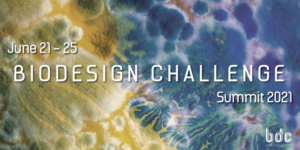
OpenLab Worlds of Flora Fauna by Saul Villegas & Silvana Moiceanu
Join us June 21-25 for BDC Summit 2021. Students will showcase their projects before an international audience and panel of 60 pioneers in art, design, and technology! Tune in to see student projects, live Q&As with judges, and talks by keynote speakers
Click here to learn more
Data Viz Collective Virtual Exhibition - Winter 2021
Jessie Kendall-Bar, graduate student in Environmental Science and OpenLab Fellow, led a data visualization collective that brought together a group of bright, driven students at the undergraduate and graduate levels from diverse fields such as Art: Games and Playable Media, Computational Media, Ecology and Evolutionary Biology, & Astronomy and Astrophysics.
UCSC ART189: Special Topics Fall 2020
An undergraduate course taught by Professor Jennifer Parker for the Art Department at UC Santa Cruz with students working remotely due to COVID-19 restrictions. Bio Art & Design is an emerging field of artistic practice at the boundary of art and science, using the tools and technologies of biology to create artworks that explore the relationship between humans and nature.
Click here for student works
INTERSECTING DATA FIELDS AN ART & GENOMICS COLLABORATION
This exhibit was born out of a desire to mobilize the power of art to tell a story about the diversity of the people, work, and impact of the Genomics Institute. Artists and Professors Jennifer Parker and Karolina Karlic invited all Genomics Institute faculty, researchers and staff to participate in a portrait series that uncovered the lens through which genomics is seen by the people who live and work in it. Each person was asked to bring an object of significance — something that inspired their being, personally and professionally.
Click here to learn more.
Openlab is happy to sponsor the Fusion exhibition to engage with physics through art and to think about the role physics plays in their lives and the world at large. Opening reception at the R. Blitzer Gallery, March 1, 2019 5pm-9pm. More information here
INTERVAL is partnering with The Black Aesthetic (TBA) on an event titled “Black on Black-ness” that seeks to think through the contemporary proliferation of various black signs whose aesthetic and commercial ownership holds a slippery relation to black people. TBA will screen and lead a workshop on Coonskin (1975) and Tangerine (2015)—films that provide ways of speaking about controversy, black aesthetics and questions of authorship.
The Black Aesthetic is an Oakland-based creative organization—recently featured in the East Bay Express—whose mission is to curate and assemble both a collective and distinct understanding of Black visual culture. Through film screenings, publications, and product development, TBA is exploring the question, "What is the Black aesthetic sensibility and what does it look like to you?”
This event is organized by INTERVAL and hosted by OpenLab with support from Film & Digital Media, History of Consciousness, and the Art Department at UCSC. INTERVAL is a space dedicated to interdisciplinary play and experimentation in art and scholarship.
Refreshments provided.
Space is limited. Please RSVP to an.intrvl@gmail.com to receive precirculated readings.
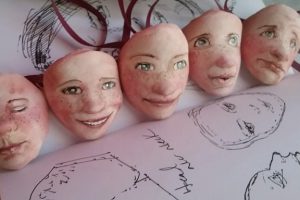
Joshua Tree Animation. Human activities have catapulted us into the 6th major extinction event on our planet where we will continue to see rapid species loss with far reaching consequences. Art has the potential to connect people to concepts at an emotional level and is a powerful tool to communicate difficult science concepts.
HiVE 3D Fabrication Tutorial: Learn Free Alternative Software to Adobe Photoshop & Illustrator
Friday January 19, 2-4pm with J Gaston. The HiVE is located in the Art Department, across from the wood shop in studio A101. Please bring your own laptop with pre-installed software: Inkscape and Pixlr. See flyer for details
Flag Field is an installation of 196 flags on the surface of the moon, forming a complete 14-row square grid—one flag for each country officially recognized by the United Nations at the time of this writing.
Learn about the Blue Trail Project. The Blue Trail blends art, design, tech and science for a trailblazing new approach with a range of innovative, interdisciplinary programs and projects to raise awareness of the ocean crisis and engage the public in new and imaginative ways.
Writ Large Exhibition at UCSC. Featuring 10 UCSC artists each using an English phrase to query a corpus & presenting the results of a cross-disciplinary event representing Creative Writing, Digital Arts & New Media, Film & Digital Media, Computer Science, and Linguistics students.
Professor Parker has participated in LASER (Leonardo Art Science Evening Rendezvous) Talks, sharing the work of OpenLab at Stanford, UCB, UCSC, San Francisco State University, and Kansas University. LASER Talks is Leonardo's international program of evening gatherings that bring artists and scientists together for informal presentations and conversations. LASER Talks were founded in 2008 by Bay Area LASER Chair Piero Scaruffi and are in over 20 cities around the world.
"Seeding Innovation" event highlights the work of a UC Santa Cruz program called Impact Designs: Engineering and Sustainability through Student Service (IDEASS). IDEASS was started by Tamara Ball, project scientist and program director under the supervision of Michael Isaacson, professor of electrical engineering and director of the Center for Sustainable Energy and Power Systems in the Baskin School of Engineering.
“Fort Nights: Neon Robot Iceberg” kicks off a new era at Fort Mason Center for Arts & Culture, one of community-focused events and exhibitions curated by FMCAC. This event, which is the first in the Fort Nights series, features more than 22 artists and musicians exploring site-specific multi-media art across the 55,000-square-foot Festival Pavilion and Firehouse
The OpenLab DANM Mechatronics & SonicSENSE Project team--led by Jennifer Parker with graduate student Sudhu Tewari--has produced HydroSONIC v.2.0 with the support of ZERO1 and the UCSC Arts Excellence Funds.
OpenLab's SonicPLACE Exhibit at Intersection for the Arts in San Francisco.
Blue Trail Design Jam created as a laboratory for imagination and innovation of art and science collaborations, the day kicked off with “meet and greet” activities as well as presentations by the Monterey Bay Aquarium, UCSC Institute of Marine Sciences and the United Nations Safe Planet Campaign. Following, participants formed interdisciplinary teams and worked through a facilitated “design thinking” process to produce a final project concept by the end of the day.
OpenLab at California Academy of Sciences for the SoundWave ((4)) Festival
OpenLab: Creating Art + Science Platforms to Engage Citizens and Grow Community Workshops, Exhibits, and Talks, organized by Jennifer Parker. Include participatory workshops: Learn about Phytoplankton, Desalination and Bike Mechanics. Create CB Radios, Discover How to Build DIY Water Rafts and Play Yahoo Answers Jeopardy Game Show
THRIVE Infant Family APP now live! Research has shown that talking with your baby while in the NICU supports cognition and language development at 18 months! Your baby knows you best and you can make the difference in development just by learning with the APP. You are not alone in the NICU because THRIVE supports you with a virtual parent group, music, movement and stories about talking with your baby!
ART + Astrophysics Exhibition. The exhibition feature four exhibit of astrophysical phenomena including Black Hole/Star Bowling Game; a Kepler App; a 3D Zoetrope of MoonSplat, and an interactive sculpture of Spectral Shifts in the Milky Way.
Balance-Unbalance is an International Conference designed to use art as a catalyst to explore intersections between nature, science, technology and society as we move into an era of both unprecedented ecological threats and transdisciplinary possibilities.
Transflux an interactive exhibition where the artists transform the Front Door Gallery into a living, breathing organism and symbiotic ecosystem. Developed by OpenLab affiliated artists Gene A. Felice II, Nathaniel Ober, and eve Warnock with coordinating artist Kate Spacek transform the Front Door Gallery into a living, breathing organism and symbiotic ecosystem. Through the exploration of the interconnectedness of our inner and outer world, the artists demonstrate the patterns and forms within life that shape who we are and where we come from.
UCSC OpenLab Spastic Robots and Frankenthings: Tear into consumer electronics and repurpose the parts for making with OpenLab Maker, Wes Modes. Create robots, kinetic art, and DIY toys from the cast-offs of consumer society. Spastic Robots are robot doodles, cyborg rejects, the workings of the mad-scientist who lives just below the landfill. We'll have VCRs and other things with motors and controllers for you to explore.
Blue Trail Innovation + Imagination for Ocean Sustainability. Despite a growing awareness of “green,” most people are unaware that our actions are polluting, depleting and killing the biodiversity of the ocean—or that we can make a difference. The ocean crisis is at a tipping point—the time for “blue” is now.
OpenLab's Oceanic Scales is featured as part of MEDIATE's SoundWAVE festival - opening night at the California Academy of Sciences Night Life.
UCSC OpenLab has participated in several First Friday festivals over the years at the Santa Cruz Museum of Art, including Night of Magic and GLOW festival
Art + Astrophysics Lab in the Digital Arts Research Center works closely with OpenLab founding Professors Enrico Ramirez-Ruiz and Jennifer Parker with support from the UCSC NSF REU- Lamat Summer Research Program, OpenLab Art & Science Research Center, and the SLUG: Supercomputer lab for Undergraduates.
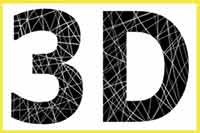
OpenLab 3D Workshop Learn how to output vector & 3D object on different media for art tech. Friday, 2-4pm, Feb. 16, 2018. UCSC Art Dept. HiVE rm A101

